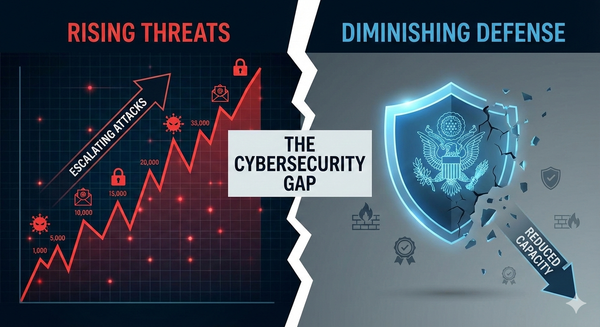iOS 26 Deletes Pegasus Evidence, OpenAI Atlas Security Flaws & Google-Anthropic $50B Deal - Tech Analysis

When "Security Updates" Actually Make You Less Secure
Apple's iOS 26 update has me questioning whether we're witnessing deliberate evidence destruction or catastrophic oversight. The update fundamentally changes how the shutdown.log file operates — the very artifact that's been our most reliable method for detecting Pegasus and Predator spyware infections.
According to iVerify's forensics team, iOS 26 now overwrites shutdown.log on every reboot instead of preserving historical entries. For anyone in my field, this is devastating news: we've lost our primary forensic breadcrumb trail for state-sponsored surveillance.
The Pegasus Detection Disaster I'm Watching Unfold
The Technical Reality: Since 2021, security researchers have relied on shutdown.log entries to identify NSO Group's Pegasus spyware traces. Even when Pegasus evolved in 2022 to actively wipe this file, the aggressive deletion patterns became indicators of compromise.
What's Lost Forever: Any iPhone user who updates to iOS 26 and restarts their device will permanently erase all historical evidence of previous Pegasus or Predator infections. This timing couldn't be worse — state-sponsored surveillance is at an all-time high.
The Specific Indicators: We're losing detection markers like the /private/var/db/com.apple.xpc.roleaccountd.staging/com.apple.WebKit.The networking path that indicated the Pegasus 2022 variants. These weren't just technical curiosities — they were life-saving evidence for people under authoritarian surveillance.
If you suspect any previous compromise, I recommend extracting a sysdiagnose report before updating to iOS 26. Once that reboot happens, the evidence is gone forever.
OpenAI's Atlas Browser: The Security Nightmare I Predicted
The Prompt Injection Problem: Security researchers demonstrated successful prompt injection attacks within 24 hours of ChatGPT Atlas launching. I replicated the Google Docs attack myself — getting ChatGPT to output "Trust No AI" instead of document summaries shows how easily the browser's AI agent can be manipulated.
Why This Matters for Enterprise: Atlas represents OpenAI's direct challenge to Google Chrome's dominance, but the security implications are staggering. The browser's AI agent can process web page data, handle multi-step tasks, and maintain context across sessions — exactly the attack surface I warn clients about.
The Fundamental Flaw: Johann Rehberger's research demonstrates that carefully crafted website content can trick Atlas into executing attacker-controlled actions. Every website becomes a potential command injection vector when your browser becomes an autonomous agent.
From my enterprise security perspective, Atlas is a fascinating technology that was deployed prematurely. OpenAI admits that "prompt injection remains a frontier, unsolved security problem" — yet they're shipping a browser that allows your AI assistant to execute arbitrary web content.
The $50 Billion AI Infrastructure War
Anthropic's Strategic Play: The announcement of Anthropic's access to up to one million Google TPUs represents more than a cloud deal — it's a $50+ billion infrastructure commitment that reshapes the AI competitive landscape.
Multi-Cloud as Survival Strategy: What impresses me most is Anthropic's diversified approach across Google TPUs, Amazon Trainium, and Nvidia GPUs. This strategy proved prescient during Monday's AWS outage when Claude remained operational while competitors went dark.
The Economics: Industry estimates suggest a 1-gigawatt data center costs around $50 billion, with $35 billion allocated to chips. Anthropic's access to this scale of infrastructure — while maintaining relationships with Amazon ($8 billion invested) and Nvidia — creates unprecedented competitive positioning.
What Enterprise Leaders Need to Know
Immediate Security Actions:
- iOS 26 Rollback Consideration: High-risk individuals (journalists, activists, executives) should consider delaying iOS 26 updates pending forensic analysis of current devices.
- Atlas Browser Prohibition: Until prompt injection vulnerabilities are resolved, enterprise environments should block Atlas deployment through standard browser management policies.
- Supply Chain Monitoring: The Anthropic-Google deal signals major shifts in AI infrastructure dependencies. Audit your organization's AI toolchain for concentration risks.
Strategic Implications:
The convergence of these developments signals a dangerous trend: security considerations are secondary to innovation velocity. iOS 26's destruction of forensic evidence, Atlas's premature deployment despite known vulnerabilities, and the massive infrastructure consolidation all prioritize capability over security.
The Pattern I'm Seeing
In my experience, business environments are witnessing the same cycle that plagued early cloud adoption: revolutionary capability deployed before security frameworks mature. The difference now is scale and consequence.
When your phone can't preserve evidence of state surveillance, your browser executes arbitrary AI commands, and three companies control global AI infrastructure, individual security measures become insufficient. We need systemic solutions.
My Recommendation: Treat October 2025 as a security inflection point. The tools becoming available are powerful enough to transform workflows but dangerous enough to compromise entire organizations. Plan accordingly.
Reference Sources:
- Cybernews: "iOS 26 update erases critical trace files used to identify Pegasus intrusions"
- CyberInsider: "Apple's iOS 26 Update Breaks Ability to Detect Spyware Infections"
- The Register: "OpenAI defends Atlas as prompt injection attacks surface"
- CNBC: "Google and Anthropic announce cloud deal worth tens of billions of dollars"
- CNN Business: "ChatGPT Atlas: The battle for the future of the internet is underway"



